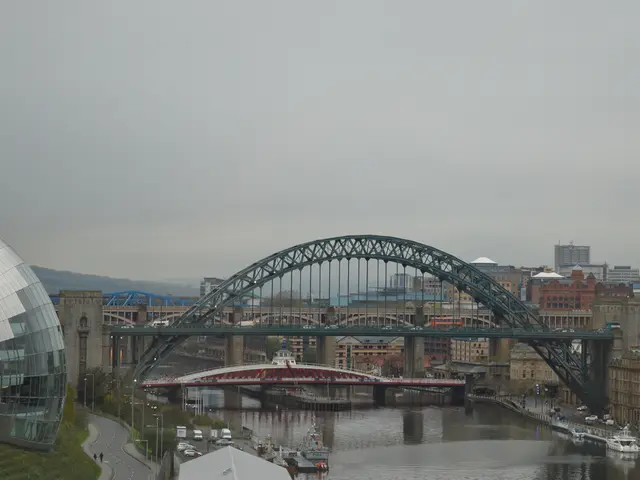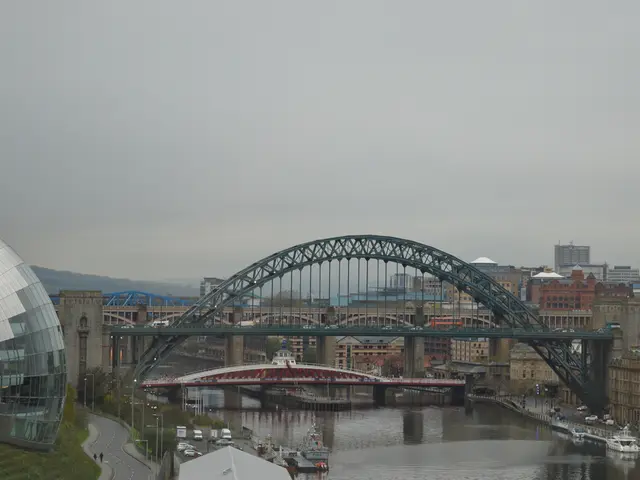Fossil fuels remain the primary energy source for heating in Baden-Württemberg
In recent years, Baden-Württemberg has been making strides towards a more sustainable future, particularly in the realm of residential building heating. According to data from 2024, an impressive 75% of newly built residential buildings in the region were equipped with heat pumps, a significant increase from the 47% recorded in 2016.
However, gas heating systems still held a 10% share in the new buildings, with over 1,000 new buildings equipped with them in 2024. It is worth noting that due to new building regulations effective from 2024, new heating installations in Germany must be at least 65% powered by renewable energy, making gas heating less common in new constructions.
Despite the progress, more than one-third of residential buildings in Baden-Württemberg were heated with oil, and a staggering 73% were still heated with fossil fuels as of 2022. This high share of fossil fuels has led environmental protection officer, Fritz Mielert, to call for fixed rules on when the sale of natural gas should no longer be permitted and a ban on operating fossil heating systems from 2040.
Mielert believes that with cooperation from the federal government, state, municipalities, companies, and population, the goal of climate neutrality by 2040 can be achieved. In line with this vision, the Ministry of the Environment in Baden-Württemberg has stated that oil and gas heating will no longer be allowed in the state by 2040.
The transition to renewable energies could be facilitated by the higher share of oil heating in Baden-Württemberg, as there is no extensive gas network that would need to be converted. In fact, cities like Mannheim, Ulm, and Heidelberg predominantly use district heating for heating in new buildings.
Renewable energies play a much bigger role in new buildings than in the existing building stock. Hybrid heating systems, which can be supplemented with biogas or hydrogen, can still be installed in new buildings outside new development areas, but the impact of the law will only be visible in the numbers for 2025.
Municipalities in Baden-Württemberg are now required to implement the measures they have set out in their heat plans to achieve climate neutrality. These measures include building new heat networks, creating consulting offers for citizens, and renovating public buildings.
In Baden-Baden, gas heating systems were installed in 13 out of 34 newly built houses, which is the highest proportion in Baden-Württemberg at 38%. However, with the increasing push towards renewable energy, it is expected that this trend will change in the coming years.
In summary, while Baden-Württemberg has made significant strides towards renewable energy heating, there is still a long way to go. With the implementation of new regulations and the cooperation of various stakeholders, the region is well on its way to achieving climate neutrality by 2040.
Read also:
- Deepwater Horizon Oil Spill: BP Faces Record-Breaking Settlement - Dubbed 'Largest Environmental Fine Ever Imposed'
- Expansion of railway systems, implementation of catenary systems, and combating fires: SNCF adapting to the summer heatwave
- Citizen Thekla Walker, Minister, advises: "Let's focus on our own homes first"
- British pension trust seeks minister's support for review of fiduciary obligations








